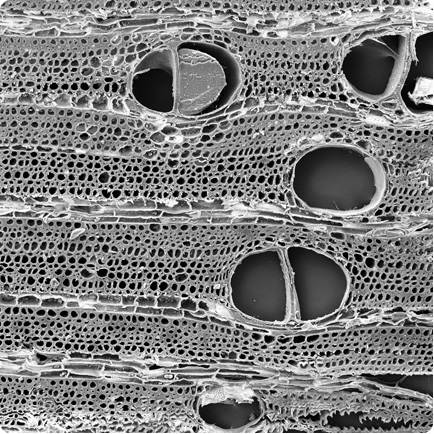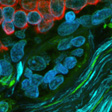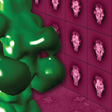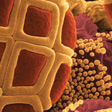 This tiny slice of wood can now be identified as red cedar due to its microscopic structure. It comes from the historic Riley cabinet, made by an early Australian convict circa 1817 using 13 different native woods.
This tiny slice of wood can now be identified as red cedar due to its microscopic structure. It comes from the historic Riley cabinet, made by an early Australian convict circa 1817 using 13 different native woods.
Visualised using scanning electron microscopy by Dr Roger Heady, Australian National University.
Size: about 1 millimetre wide.
Rollover the micrograph (left) to see a photograph of the Riley cabinet. Nobody knew exactly which native woods had been used to make the cabinet until the researchers looked at them all under the microscope. They used a modified veterinary needle to take microcores for analysis, a new technique that can now be used to sample other valuable pieces of furniture. The colonial furniture-makers had to adapt, learning which unfamiliar native woods were going to make good furniture. They did well, because the Riley cabinet is still in pretty good shape!
Interested scientists can read the published study: R.D. Heady, G.N. Peters & P.D. Evans, Identification of the woods used to make the Riley cabinet - A historically-significant example of early Australian, convict-built, furniture. IAWA J. 31 (4): 385-397



































